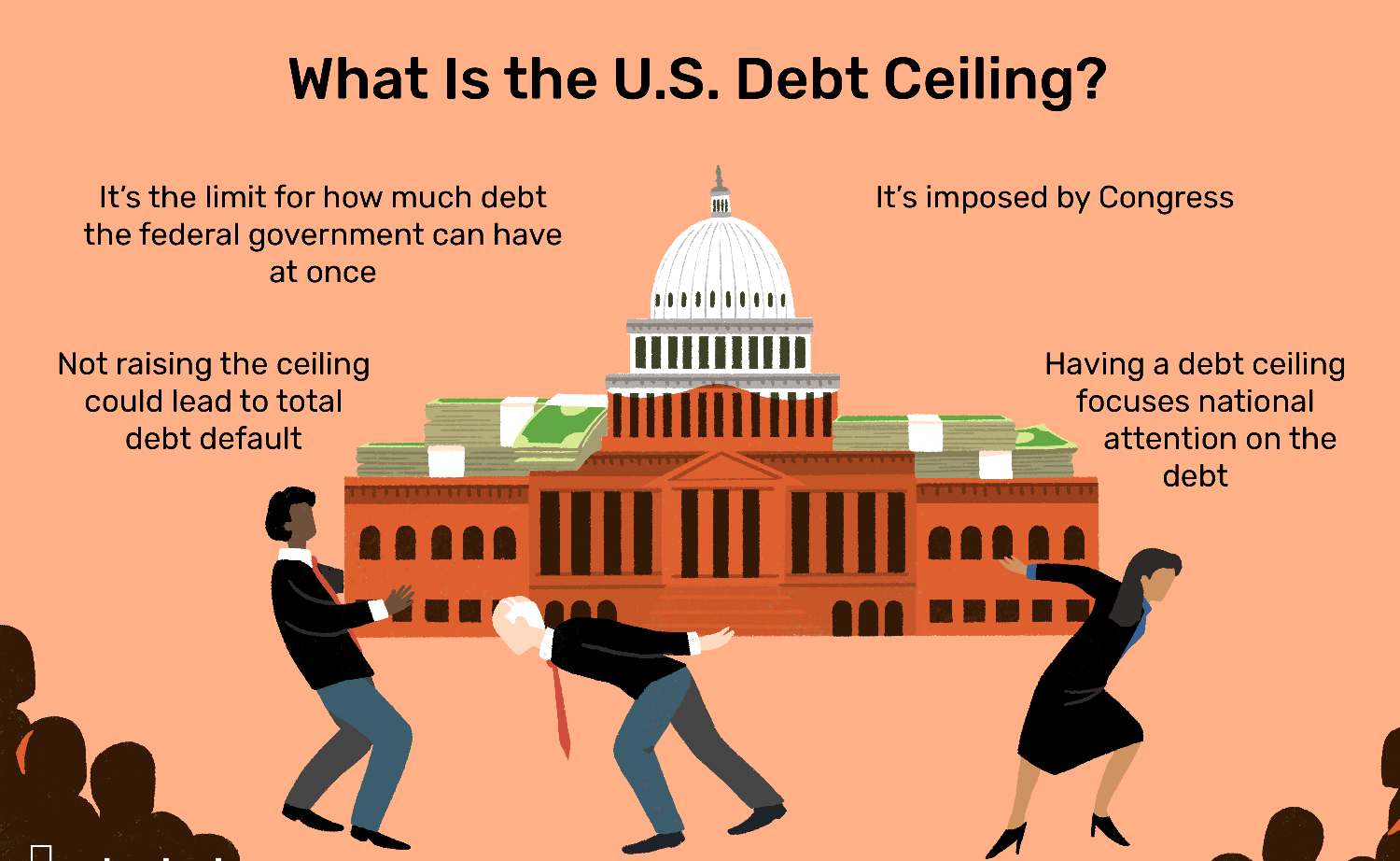U.S. averts first-ever default with the 11th-hour debt deal
Context:
Four days before the Treasury Department’s deadline, U.S. senators voted to suspend the federal debt ceiling on Thursday, bringing to a conclusion weeks of difficult discussions to do away with the risk of a calamitous credit default.
What is the US Debt ceiling Limit?
- It represents the maximum amount of debt the US can take on to cover its obligations.
- American economist Janet Louise Yellen, the 78th Secretary of the Treasury of the United States, has notified lawmakers that the US government is going to exceed the US Debt ceiling limit by June 1st.
- The US government is attempting to raise this borrowing ceiling so it can expand its debt-reduction borrowing capacity.
- The US government uses this money to cover costs such as those related to the military, infrastructure, education, and paying federal employees.
- The fixed debt ceiling is at 31.40 Trillion USD and The current ceiling is at roughly around 31.38 Trillion USD.
Short-term impact on US Economy:
- They won’t be able to pay their obligations like military expenses or other expenses that have to be met by them.
- Default on the interest payments on government debts
- This will lead to the downgrading of the US economy as a whole leading to further financial chaos in the society.
- Escalating US Regional Banks Crisis
Long Term impact on the US economy
- Debt burdens on the future generations who have to pay these debts off.
- Chances of reducing the economic growth potential
- Increases the chances of financial dependence on Foreign investors.
Can India also face similar problems?
- Probably, But the difference is that India doesn’t have to wait for permission from its opposition parties because as such there is no specific Debt Ceiling for India under law.
- However, it is stated as a percentage of GDP. According to the CAG report from December 2022, the FRBM framework requires the government to keep the fiscal deficit to a maximum of 3% of GDP and to endeavour to keep both the general government debt and the central government debt to a maximum of 60% and 40% of GDP, respectively.
Impact on the Indian Market?
- Loss of investor confidence in the US market
- Possible fall of Governments and political uncertainties.
- Huge rise in interest rates.
Points to ponder:
- Just four days before the Treasury’s deadline, U.S. senators voted to suspend the debt ceiling. The goal of this vote was to end the possibility of a calamitous credit default.
- After several weeks of discussions, Democratic President Joe Biden and Republicans finally agreed to the vote. The Fiscal Responsibility Act decreases federal spending while extending the government’s ability to borrow money through 2024.
- A day after the House of Representatives had approved it, the legislation was passed by the Senate by a comfortable margin of 63 votes to 36. This cross-party deal was hailed as a major victory for the economy and the people of the United States.
- If the debt limit was not raised, economists had warned that the nation could not have enough money to pay its payments by Monday. They emphasised the negative effects that would occur, such as the loss of millions of jobs, a $15 trillion decline in personal wealth, and higher borrowing and mortgage expenses.
- Democratic leaders emphasised how crucial it was to avoid default since it would have had a disastrous effect on the economy. The Fiscal Responsibility Act was passed, the debt limit was suspended, and the prospect of the first default in history was eliminated.
- President Biden acknowledged his happiness with the bipartisan deal, stressing that it is a significant victory for the economy and the American people despite the reality that no one gets all they desire during negotiations. He intends to speak to the nation about the measure and sign it as soon as possible.
- Chuck Schumer, the majority leader of the Democratic Senate, emphasised the relief of averting a financial crisis. He appreciated the cooperation of both sides in averting default and emphasised the importance of this cooperation.
- Due to last-minute complaints about the specifics from party leaders and rank-and-file members, the bill’s passage was difficult. Initial concerns about the Pentagon budget cap from defence hawks could have prevented the bill’s approval.
- After being promised support for a separate package that would include funds for Ukraine’s defence against Russian aggression, the defence hawks eventually joined the majority. This pledge was also meant to counter Chinese aggression towards Taiwan and advance American national security objectives in West Asia.
- Now that President Biden has received the measure, he will sign it into law. When signed, it will suspend the debt ceiling, increase the government’s borrowing capacity through 2024, and include budget cutbacks.





